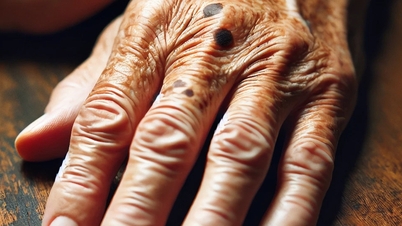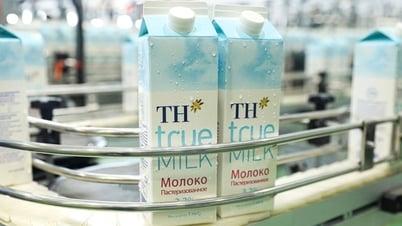Dr. Sanjai Sinha, an internal medicine specialist and associate professor of clinical medicine at Weill Cornell Medicine, New York-Presbyterian Hospital (USA), and Ms. Kara-Marie Hall, a member of the American Association of Critical Care Nurses, both agree that beyond the main benefit of providing vitamin D, there are many reasons why sun exposure is the healthiest thing you can do during the cold season, according to the health news site GoodRx Health .

Aside from the primary benefit of providing vitamin D, there are many reasons why sun exposure is the healthiest thing you can do during the cold season.
Health benefits of winter sun exposure
Vitamin D: Exposure to sunlight helps the body make vitamin D — which benefits health in many ways, including:
- Supports bone and muscle health.
- Regulates blood pressure.
- Regulates the immune system.
- Maintain vascular health.
- Keep your brain in good working order.
- Regulates blood sugar levels.
All of these factors need support during the winter, as blood pressure, the immune system, blood vessels, the brain, and even blood sugar levels are all negatively affected by cold weather.
Helps lower blood pressure: High blood pressure leads to heart attacks, strokes, and kidney damage. Research shows that moderate exposure to sunlight helps lower systolic blood pressure, according to GoodRx Health .
Supports the immune system: Exposure to sunlight helps improve immune function. Vitamin D plays an important role in supporting a strong immune system, helping to reduce the risk of respiratory infections and illnesses that often occur during winter, according to India .
Improves Mood: Exposure to sunlight triggers the release of the “happy hormone” serotonin, which promotes feelings of happiness and well-being. During the winter, many people suffer from seasonal affective disorder, which causes low mood and depression. Exposure to winter sunlight can help alleviate these symptoms and improve overall mood.
Sleep Aid: Regular exposure to sunlight can increase alertness during the day and promote better sleep at night. This is especially important for people who experience sleep disturbances during the winter months.

Sunlight stimulates the production of vitamin D, which is essential for maintaining healthy skin.
Good for the skin: Moderate exposure to winter sunlight can be beneficial for the skin. Sunlight stimulates the production of vitamin D, which is essential for maintaining healthy skin and alleviating certain skin conditions such as psoriasis and eczema.
Increased energy and vitality: Sunlight has an energizing effect on the body. Exposure to natural light during the winter can help combat feelings of fatigue and lethargy. It promotes increased energy levels and a sense of vitality, helping people stay active and engaged during the colder months.
However, it is important to remember not to overexpose yourself to the sun, especially during peak hours when the sun's rays are strongest, according to India .
Source link




![[Photo] Prime Minister Pham Minh Chinh starts construction of vital highway through Thai Binh and Nam Dinh](https://vphoto.vietnam.vn/thumb/1200x675/vietnam/resource/IMAGE/2025/5/12/52d98584ccea4c8dbf7c7f7484433af5)


![[Photo] Buddha's Birthday 2025: Honoring the message of love, wisdom, and tolerance](https://vphoto.vietnam.vn/thumb/1200x675/vietnam/resource/IMAGE/2025/5/12/8cd2a70beb264374b41fc5d36add6c3d)






















![[Photo] General Secretary To Lam meets and expresses gratitude to Vietnam's Belarusian friends](https://vphoto.vietnam.vn/thumb/1200x675/vietnam/resource/IMAGE/2025/5/11/c515ee2054c54a87aa8a7cb520f2fa6e)

































































Comment (0)